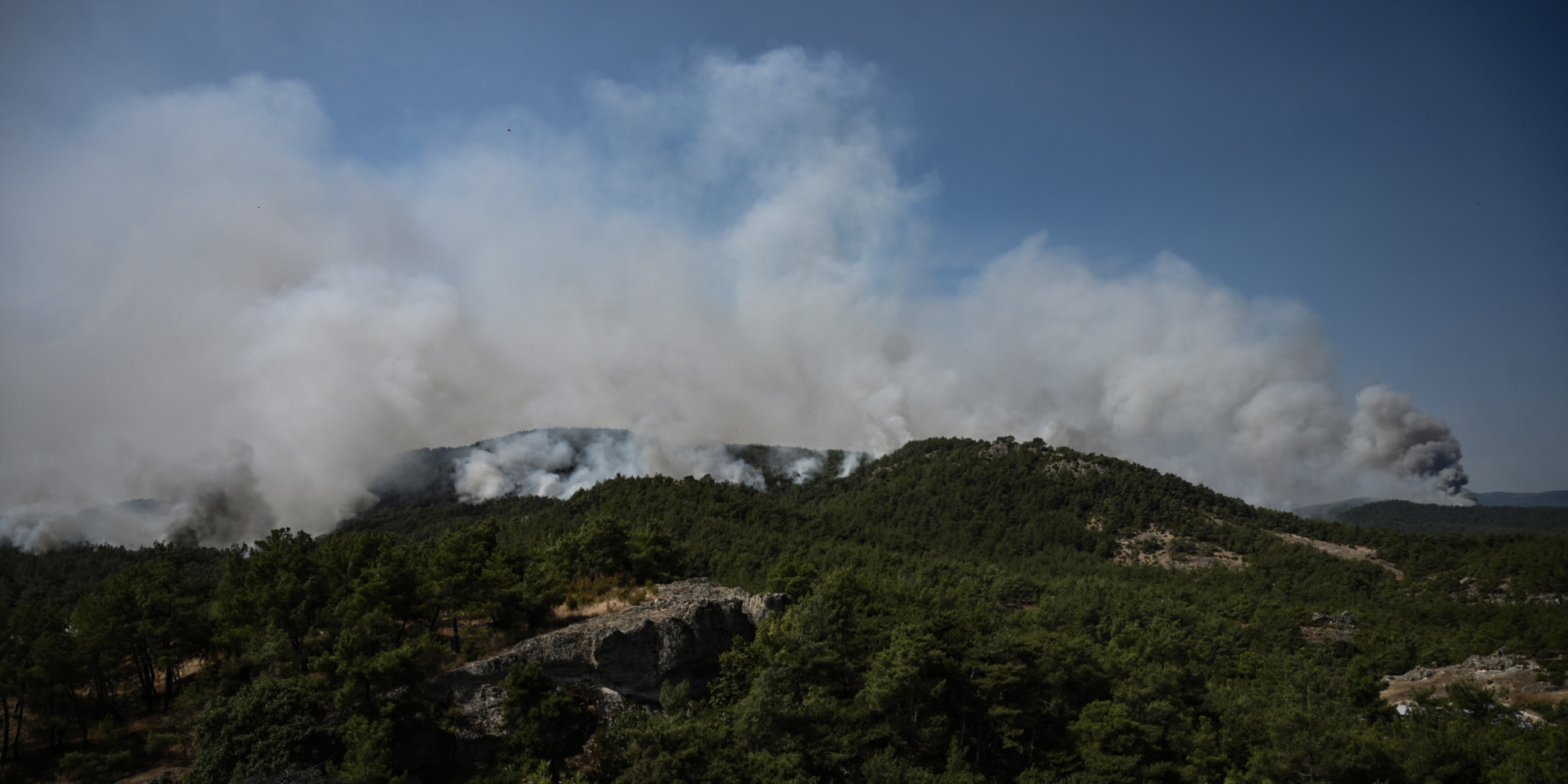Greece has been fighting for eleven days against a devastating fire in the border department of Evros (north-east) and the protected forest of Dadia, the “largest fire ever recorded in the EU” having killed 20 people and caused “a disaster ecological” and economical. Declared on August 19 and having already burned 81,000 hectares, according to the European observatory Copernicus (EMS), this fire is “the largest ever recorded in the EU”, indicated Tuesday in Brussels Balazs Ujvari, a spokesperson for the European Commission.
An important device mobilized
The fire continues to burn the forest of Dadia, located in the center of Evros, an area protected by the European network of Natura 2000 which is known worldwide as a place of habitat or hibernation for raptors on Tuesday. According to firefighters, three homes remain problematic and must still be extinguished in Evros, on the Greek-Turkish border, 860 km from Athens. Nearby, the department of Rhodopes is also facing renewed fires. A total of 475 firefighters with 100 vehicles, 6 planes and 4 helicopters are mobilized Tuesday on these two fronts.
The EU has in recent days sent 11 planes and a helicopter from the European fleet to help Greece with 407 firefighters, half of the common European air assets, according to Balazs Ujvari. The vegetation is so dense in this region that the flames are often not visible, and the water thrown by the firefighters often does not reach the hearths which are burning on the ground, estimate the rangers of the region. Last week, 20 people were found charred, mostly migrants including two children, near Alexandroupoli, capital of Evros, as well as a shepherd who died trying to save his flock in a region in the center of Greece.
“Tragic”
Composed mainly of black pines (Pinus nigra) and Scots pines (Pinus brutia) mixed with oaks, Dadia Park is best known for its birds of prey. Three of the four European species of vulture are present: the black vulture (Aegypius monachus), the griffon vulture (Neophron percnopterus) and the Egyptian vulture (Gyps fulvus), according to the Greek association of ornithologists.
Recalling a large fire that affected Dadia in 2011, forest ranger Dora Skartsis believes that “everything that has been regenerated since has been lost” in recent days. “If we take into account the forest areas burned by the fire in southern Evros, we are talking about a huge ecological disaster. The picture is tragic,” said this expert who heads the Society for the Protection of the biodiversity of Thrace. The Dadia forest is vital for the local economy, as it supports logging, beekeeping and tourism activities in the department of Evros, one of the poorest in the country.
In the municipality of Alexandroupoli alone, more than 4,000 sheep and goats were burned, as well as 50 sheepfolds, according to first estimates, while warehouses containing animal feed were also destroyed, according to Kostas Dounakis, president of the ‘Local Breeders’ Association. “All the pasture has been burned, the whole area has been destroyed and the animals have nowhere to graze… All this creates a very high cost for the herders,” he lamented on the television channel. public Ert.
“The Hardest Summer”
Greek Prime Minister Kyriakos Mitsotakis met on Tuesday with several ministers to discuss the reforestation needed after the fires in the Evros region and on Mount Parnes. The Minister of the Environment, Theodoros Skylakakis, announced that anti-flooding works must begin in the regions concerned to avoid landslides with the first rains of autumn. Compensation for breeders and farmers, as well as for residents who have lost their homes are planned.
Like the countries around the Mediterranean, Greece is plagued this summer by numerous fires that the government attributes to climate change. “It is the most difficult summer in terms of climatic conditions, which makes the work of the authorities (…) much more difficult”, underlined Monday Pavlos Marinakis. More than 120,000 hectares have been burned so far across the country, according to estimates by the Greek National Observatory – three times the annual average since 2006, for its part noted the EMS.
